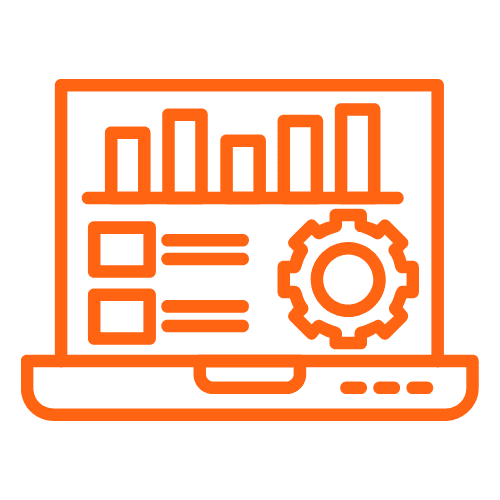
The impact of AI on job quality and business efficiency
Discover how AI influences work quality and business efficiency, highlighting its role in productivity, job security or employee development.
Today, modern businesses are evolving rapidly. The integration of Artificial Intelligence (AI) has emerged as a transformative force, reshaping not only operational efficiency, but also the quality of employment and the dynamics of the workspace. As industries around the world adopt AI technologies to streamline processes and gain competitive advantage, the impact on the workforce is increasingly evident.
From improving productivity to ensuring workplace safety and fostering employee development, AI’s influence permeates every aspect of organisational life. This comprehensive overview delves into the multifaceted effects of AI on job quality and business efficiency, exploring its implications in the global context and, specifically, in Spain’s unique industrial landscape.

Table of Contents
Improving business efficiency: The role of AI adoption in global business
The integration of Artificial Intelligence (AI) into business operations is not just a futuristic concept but a present reality. As of 2024, AI adoption has become increasingly common in enterprises globally. According to IBM, about 42% of enterprise-scale companies have actively deployed AI in their business operations, with an additional 40% exploring or experimenting with the technology. These statistics signify a substantial commitment to AI within the corporate sector, underscoring its potential to revolutionise various aspects of business. However, challenges such as limited AI skills and expertise, data complexity, and ethical concerns continue to shape the trajectory of AI adoption.
In Spain, the scenario mirrors global trends, albeit with certain local nuances. Among various markets, Spain shows a relatively lower rate (28%) of active AI usage in large organizations. Nevertheless, Spanish companies are progressively exploring AI technologies, particularly in sectors like financial services and telecommunications. This indicates a growing recognition of AI’s potential in enhancing business operations and the overall job quality within Spain’s diverse industrial landscape.
AI’s impact on job quality and workspace environment
In this analysis of the impact of artificial intelligence on job quality and the work environment, we highlight relevant data provided by leading consulting and technology companies such as IBM, McKinsey, PwC and Nucleoo. These sources provide a comprehensive view of how AI is transforming various aspects of employment and the work environment. Below, we examine some of the key benefits that AI brings to the quality of jobs and the work environment, based on data collected by these recognised organisations.

Efficiency and Automation
44% cost savings in manufacturing and supply-chain management.

Data-Driven Decision Making
Up to 40% increase in productivity by 2035.

Workplace Safety and Health
Indirect benefits like reduced accidents and associated costs.

Employee Training and Development
Broad organizational benefits, including efficiency and productivity.

Reduced Dependency
Employees benefit from reduced dependency on experienced personnel for routine tasks, enabling a more scalable and homogenised approach to employee tasks.
AI’s Impact on Job Quality
Overall, AI’s integration into business operations leads to substantial cost savings, increased productivity, and a focus on higher-value tasks, all contributing to improved job quality. Here are some examples:
- One of the key shifts brought by AI and discussed in multiple sectors is the new employee focus. AI-driven automation not only saves costs but also redirects employee focus to value-adding tasks, moving away from repetitive and predictable work.
- By leveraging AI for informed data-driven decision-making, businesses and employees can expect an increase in productivity. For instance, PwC suggests that AI could boost employee productivity by up to 40% by 2035. This improvement comes from AI’s ability to process and analyze large data sets, becoming a key support for strategic decision-making.
- In sectors where safety is paramount, AI contributes to reducing risks and predicting hazards. Employees can benefit from reduced workplace accidents and associated costs due to AI, contributing significantly to overall job quality and organizational efficiency.
- Employee Training and Development: AI is known for identifying skill gaps and offers tailored training, which is crucial for professional growth. AI’s role in enhancing employee capabilities leads to broader organizational benefits, including improved efficiency and productivity.
- Additionally, and one of the key benefits we have experience with our clients, is that by reducing dependency on experienced personnel for routine tasks, AI enables a more scalable and homogenised approach to operations. Junior staff can effectively manage tasks with AI support, leading to more efficient use of human resources.
- As a last notable benefit, AI helps in eradicating human errors, thereby enhancing the quality of work and reducing costly mistakes. In many cases, AI also acts as a “copilot” for employees, providing tailored support.
These are some examples of how AI can improve job quality for many employees, however the success of AI adoption, depends on strategic implementation, ensuring alignment with business goals, and ongoing investment in AI skills and capabilities.
If you need a partner to help you assess where to start your AI journey don’t hesitate to contact us.

